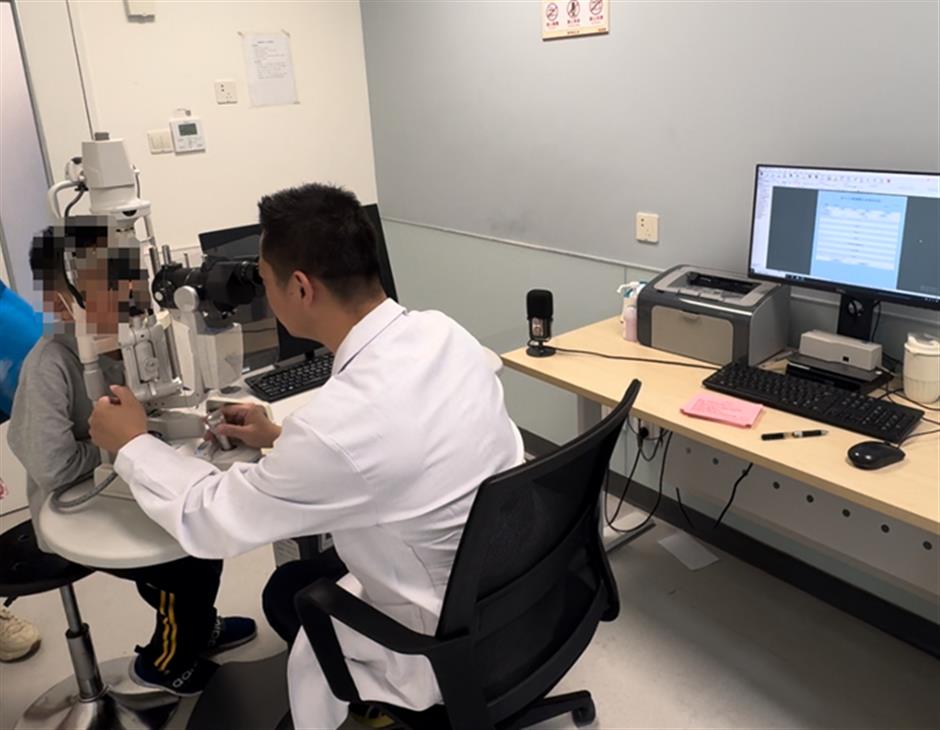
Fudan University’s Eye, Ear, Nose and Throat Hospital has started to use artificial intelligence to create medical records in outpatient services for children with myopia, to save doctor’s time and the added burden of writing or typing each record themselves, greatly boosting doctors’ efficiency and improving their patients’ experience.
The AI medical record system, the first of its kind in domestic hospitals, combines optical knowledge and AI technology to create a professional database of all medical terms and automatically studies through training based on large medical records, medical books, and knowledge systems on eye diseases.
After renovation and practice, the AI has met quality control standards for local medical recording and is able to simulate medical professionals’ thinking and medical processes.
Ti Gong
A doctor from Fudan University’s Eye, Ear, Nose and Throat Hospital checks a child while the AI system creates the medical record automatically.
With this AI system, doctors only need to focus on communicating with the patient, while the system can do automatic speech recognition, key word identification, semantic comprehension, and medical record formation.
“It is a great measure, which can improve doctors’ efficiency and improve patients’ satisfaction,” said Dr Zhou Xingtao, president of the hospital, which is the top eye hospital in China with a large number of patients.
In addition, the digital medical record system can also boost collaboration between different levels of hospitals.
The ENT hospital has cooperation with some 20 neighborhood health centers in Shanghai. Through online and offline collaboration, the hospital has also introduced the AI medical record system to grassroots facilities for better and more efficient medical record transfer and case discussion.
“We are exploring the use of AI in more medical applications to enhance service quality and efficiency,” Zhou said.
